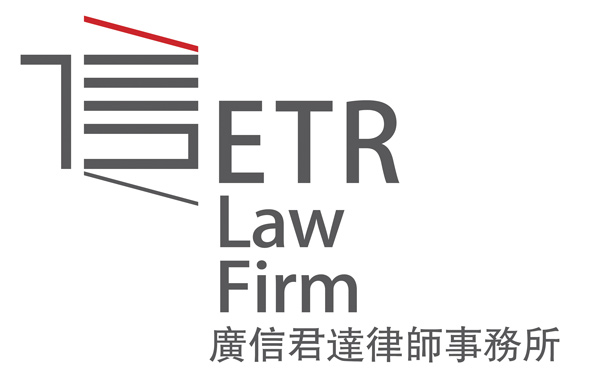In the age of the knowledge economy, there is little doubt as to the value of innovation. Therefore, many companies have taken up non-compete agreements, executed with their employees, as crucial instruments in the protection of trade secrets and maintenance of their competitive advantages.
While it is true that such agreements can effectively safeguard the business interests of employers, they also threaten to restrict labourers’ rights to freely choose their employment. Accordingly, the law requires employers to pay financial compensation to persons to whom non-compete obligations apply.
However, in practice, some companies opt to include non-compete compensation as part of employees’ monthly wages, or pay it out as a year-end bonus. In other words, the compensation is paid in advance during their employment.
Most courts have held that if such an arrangement is the true intent of both parties, it is to be found both lawful and valid. Others, however, opine that non-compete compensation should only be paid post-departure, and that the payment of such compensation during employment constitutes a violation of law, rendering such provisions invalid. In short, the validity of the advance payment of non-compete compensation remains by and large a hung issue. This article aims to shed some light.
IS ADVANCE PAY VALID?
The authors are of the opinion that non-compete compensation is a lawful and valid arrangement between the parties to an employment relationship.
Most cited adjudication opinions categorise advance compensation as a form of authorisation and apply rules accordingly. To analyse the intent behind article 23 of the Employment Contract Law, the word “may”, rather than “shall”, is used in respect of non-compete provisions, without expressly providing that non-compete compensation must be paid on a monthly basis after the employee’s departure from the company. Accordingly, many judges have come to view this provision as non-mandatory, but instead an advocacy.

Partner
ETR Law Firm
Non-compete agreements achieved based on the autonomy of parties embody contractual freedom. Article 37 of the Interpretations of the Supreme People’s Court on the Application of the Law in the Trial of Labour Dispute Cases (1) similarly states that where the parties agree on non-competition and financial compensation in the employment contract or a non-disclosure agreement, and the employer requires the employee to perform non-compete obligations upon termination of the employment contract, the court shall uphold such requirement, unless otherwise provided.
The term “agree” or “agreement” in the above-mentioned article and judicial interpretations reflects the law’s respect of the parties’ freedom to arrive at any arrangement, as long as it is based on equality and free will, and does not violate any legal provisions. In this sense, the terms of payment of non-compete compensation would certainly fall within the scope of party autonomy. Several courts have supported the practice of advance compensation out of respect for the autonomy of the parties to the employment contract.
Non-competition exists to prevent the divulgence of trade secrets and safeguard competing interests in the commercial market. The validity of advance compensation during employment is based on the very nature and purpose of non-compete compensation. Accordingly, the time and manner of the payment should not be subject to mandatory and uniform requirements.
RECOMMENDATIONS

Paralegal
ETR Law Firm
In view of the current divergence in practice, employers still need to regulate and standardise the advance payment of non-compete compensation in various ways in order to minimise the risks of dispute.
Relevant precedents have taught us that if non-compete compensation was paid as part of the salary or wages, and the employee’s wage would fall below the local minimum wage rate after subtraction of the compensation, it would be deemed unfair to the employee and thus invalid.
The court will conduct a substantive review of the nature of the pre-paid amount to prevent the employer from maliciously misrepresenting non-compete compensation as rightful compensation, thereby harming the employee’s rights and interests.
Therefore, if a company wishes to pay non-compete compensation in advance and on a monthly basis while the employment relationship subsists, it should specify in an agreement the manner, timing and amount of such compensation to be paid, and should further require the employee to issue a written confirmation of being aware of such an arrangement.
Additionally, it is necessary to separate the payment of non-compete compensation and regular wages, or include a detailed breakdown on the pay slip. Finally, it should be noted that the employee’s wage should not be lower than the local minimum wage rate after subtracting the non-compete compensation or allowance, lest the company bears further risk of litigation.
If, when paying the compensation, the employer fails to specify the term of performing the non-compete obligation to which such compensation is related, it could bear adverse consequences where the non-compete compensation paid is identified as compensation during employment only, and a separate payment of post-departure allowance is also required.
Accordingly, the authors recommend that employers clearly state in the employment contract that the non-compete compensation paid during employment covers both the period of employment and after the departure. Furthermore, companies should also pay attention to the management of corporate records, including retaining the non-compete agreement executed by the parties and receipts for the payment of the employee’s non-compete compensation.
The issue of the validity of the in-employment payment of non-compete compensation is one that bears on the immediate interests of both the employer and the employee. Only by improving the non-compete system and clarifying the rules for compensation payment can the interests of both parties be balanced, ultimately benefitting a sound and competitive market that supports the mobility of talent.
Xiao Jianji is a Partner, and Chen Jing is a Paralegal at ETR Law Firm.
10 & 29/F, Chow Tai Fook Finance Centre
No. 6 Zhujiang Dong Road
Guangzhou 510623, China
Tel: +86 20 3718 1333
Fax: +86 20 3718 1388
Email:






















